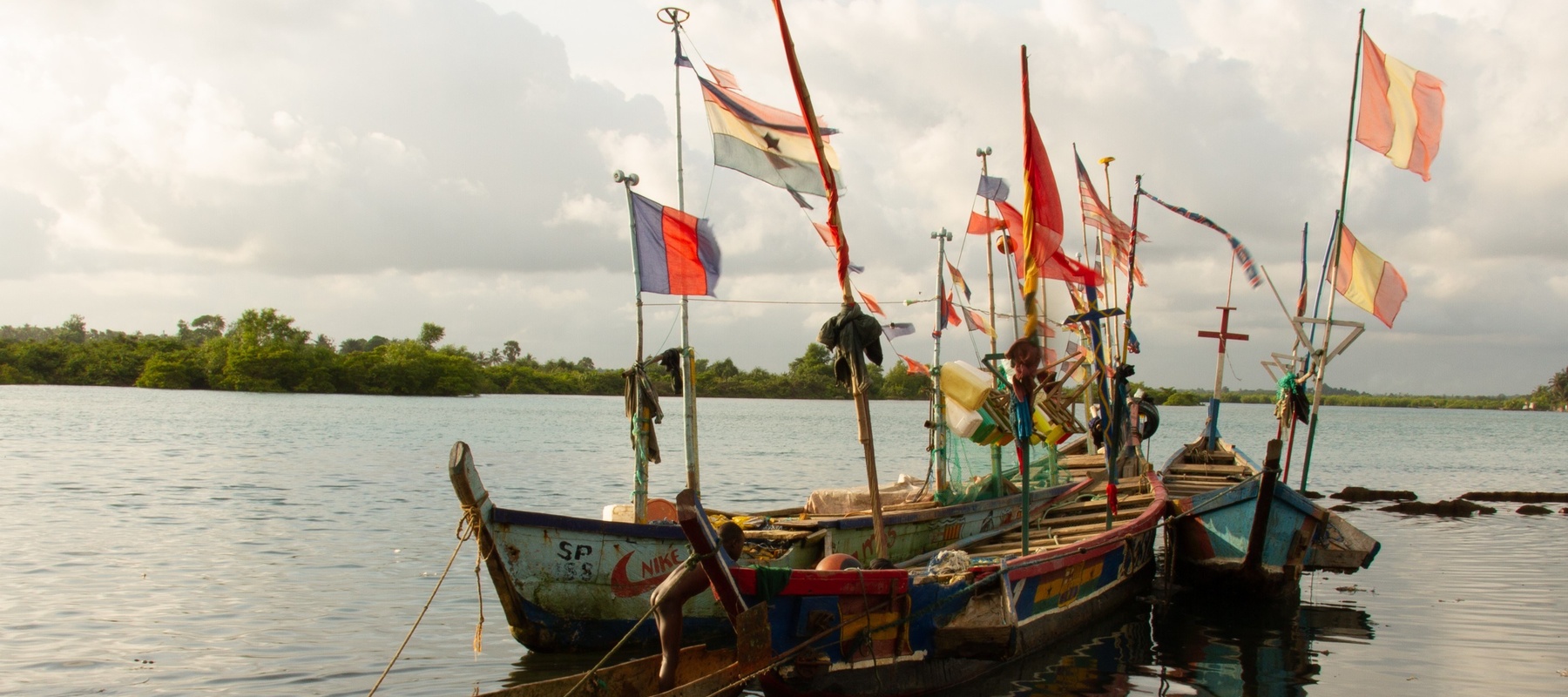On the landing beaches of Liberia fishing canoes crowd the shallows, the bright colour schemes and fluttering flags showing the pride the fishermen take in their work. But although the men haul the nets this is an industry underpinned by women.
Fishmongers in Liberia are almost entirely women and make up more than half the fisheries workforce. After haggling with the fishermen for the best price, they process the fish, salting or smoking and selling them at the bustling marketplaces.
But it is not just once the fish are landed that these women are central. The fishmongers will often buy fishing equipment or even canoes for the fishermen, investing to ensure a good supply of seafood for their own businesses.
They also hold office. Theresa Bayon is the General Secretary of the Liberia Artisanal Fisheries Association – which represents the local canoe crews and fishmongers.
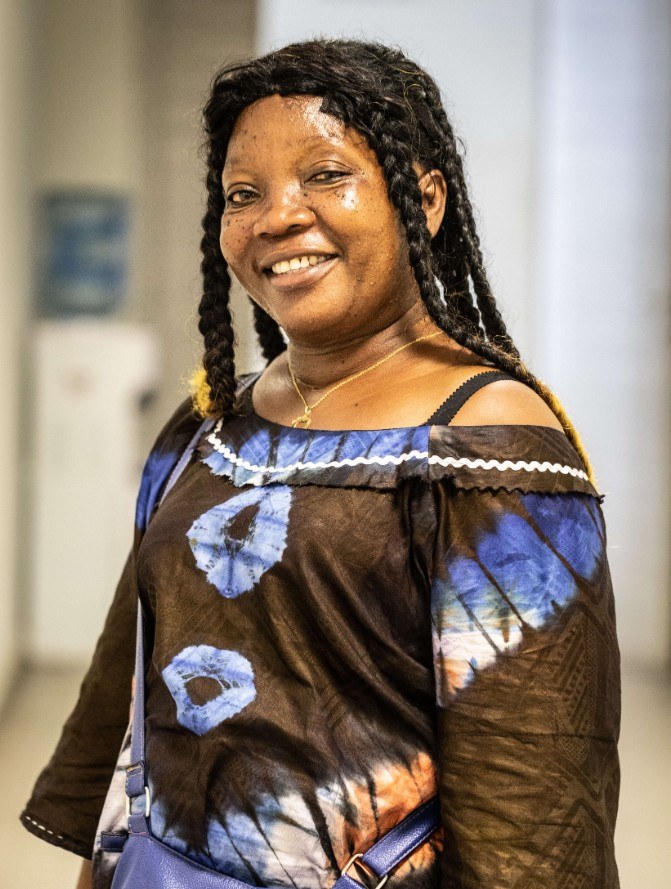
“In the industry, especially in the artisanal sector, we have approximately 33,000 fisherfolks, but we find the woman are the majority, we have 20,000 women in the sector. In Liberia, women are the strongest pillar, we manage the sector.”
Theresa Bayon, General Secretary of Liberia Fisheries Association
Theresa was a fishmonger before she took on her role, using the money she earned at the fish markets to pay her university fees, and she still plies her trade. But she’s concerned about the future.
“We still have trawlers coming at night, we still receive information from our fishermen that in the night you look on top the water [and] it’s like a big city with those trawlers that come.
We don’t want trawlers in our waters at all. I mean what I am saying. I am the general secretary of the Artisanal Fisheries Association – we will not have trawlers coming and spoiling our waters and taking away our resources.”
Theresa’s sentiments are echoed by an even more powerful woman in Liberian fisheries, Emma Metieh-Glassco, Director-general of the National Fisheries and Aquaculture Authority. The body in charge of ensuring that trawlers don’t fish illegally in the exclusion zone reserved for canoe fishers.
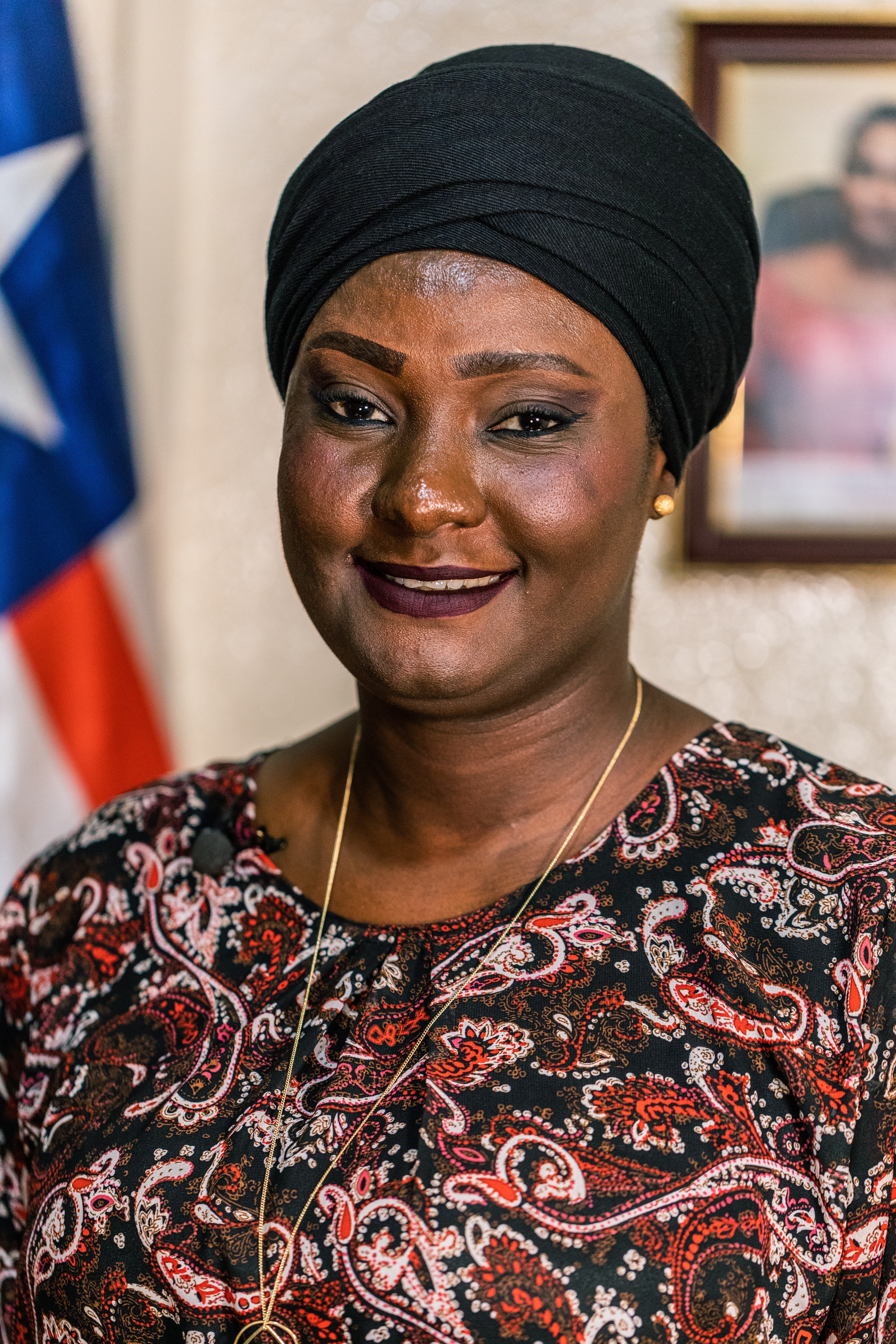
“80% of our population depends on fish. If we do not have fish available in the local market, the population might suffer from malnutrition. Overfishing effects coastal livelihoods because when they go to fish, there'll be no fish available for them to catch. So how do they support their families? How do they get daily earnings? It has huge social and economic impacts.”
Emma Metieh-Glassco, Director-General of Liberia's National Fisheries and Aquaculture Authority
Illegal fishing is not limited to the trawlers, although they have the greatest impacts, some canoe crews will also use illegal practices such as dynamite or chemical fishing – when toxic chemicals like DDT are poured over the side, and the dead fish scooped up. For the fishmongers this is a serious issue as well, not only because of the health concerns, but also because such fish are unsellable.
To safeguard Liberian fisheries from all illegal fishing, a clear path to good management for healthy seas is needed. And that means hearing all voices equally – including the fishmongers.
“It's challenging being a woman working in the fishery sector,” says Emma. “I take [being NaFAA’s Director-general] as an opportunity given to me to increase the visibility of fishmongers – women that have been working in the fishery sector that have been marginalised, that have been side-lined. I will champion the cause into setting [fishmongers] into cooperatives where they can be visible and they can be in an organised structure. […] We can work together to give them a voice so that they can also play an equal role in the management of the fish resources.”

An important route for such engagement is what are known as Collaborative Management Associations – these give fishing communities co-control over territorial use rights, as well as greater input on issues from landing areas to permitted catches. The first of these was set up in Robertsport by the Environmental Justice Foundation, and has brought a reduction in illegal fishing and an increase in catches.
Miatta Passewe is the Robertsport CMA treasurer.
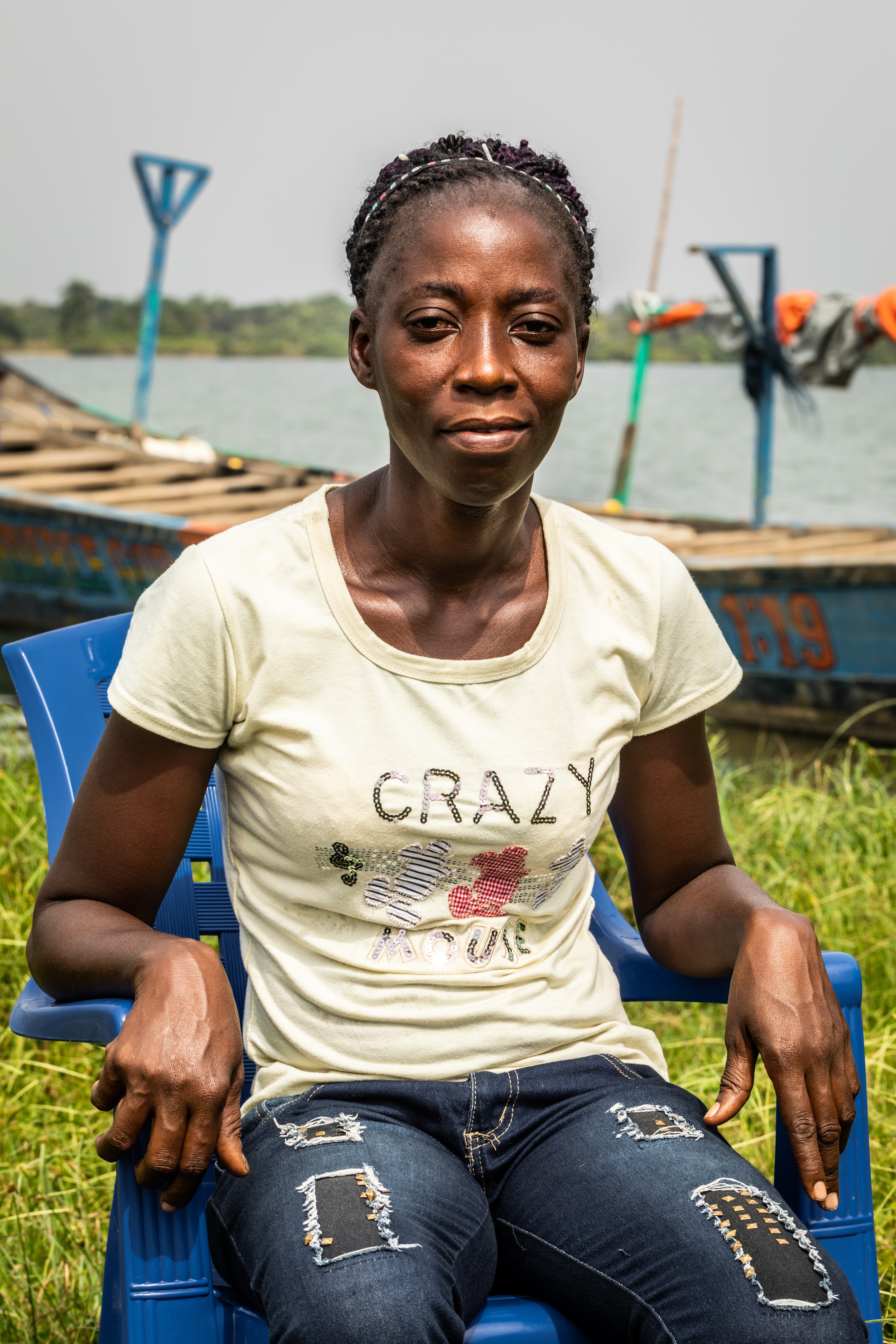
“I feel proud being among eight men. As a lady I feel proud because when we go to a meeting, among the nine, we have nine executives, I’m the only female representative. They’re always listening whenever I go to a meeting - they ask me to give my own point of view.”
Miatta Sappewe, treasurer of Robertsport CMA
Along with Theresa and other fishmongers she is keen to bring to the table issues which would otherwise be neglected. The exposure to smoke when processing the fish is a particular concern for the women.
Rita Bellue has been fishmonger in Robertsport for six years, and she says: “My particular worry is eyesight. Because the smoke gives us infections in the eyes. I think the CMA can at least help us to bring medical doctors for an eye check. They can wash your eyes because you’re always drying fish and particular medicine could wash your eyes to help them be clear. The CMA should be able to help us for that.”
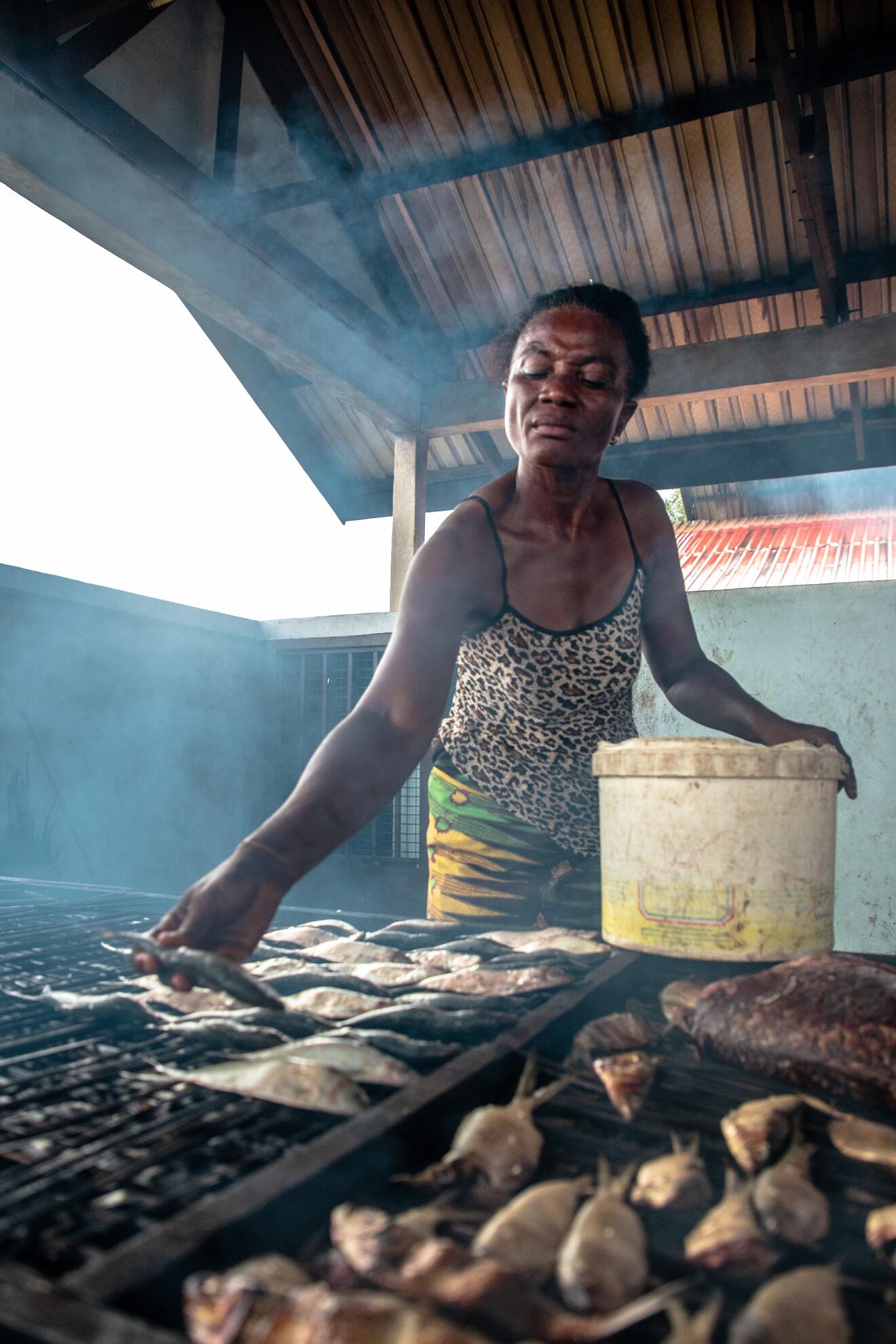
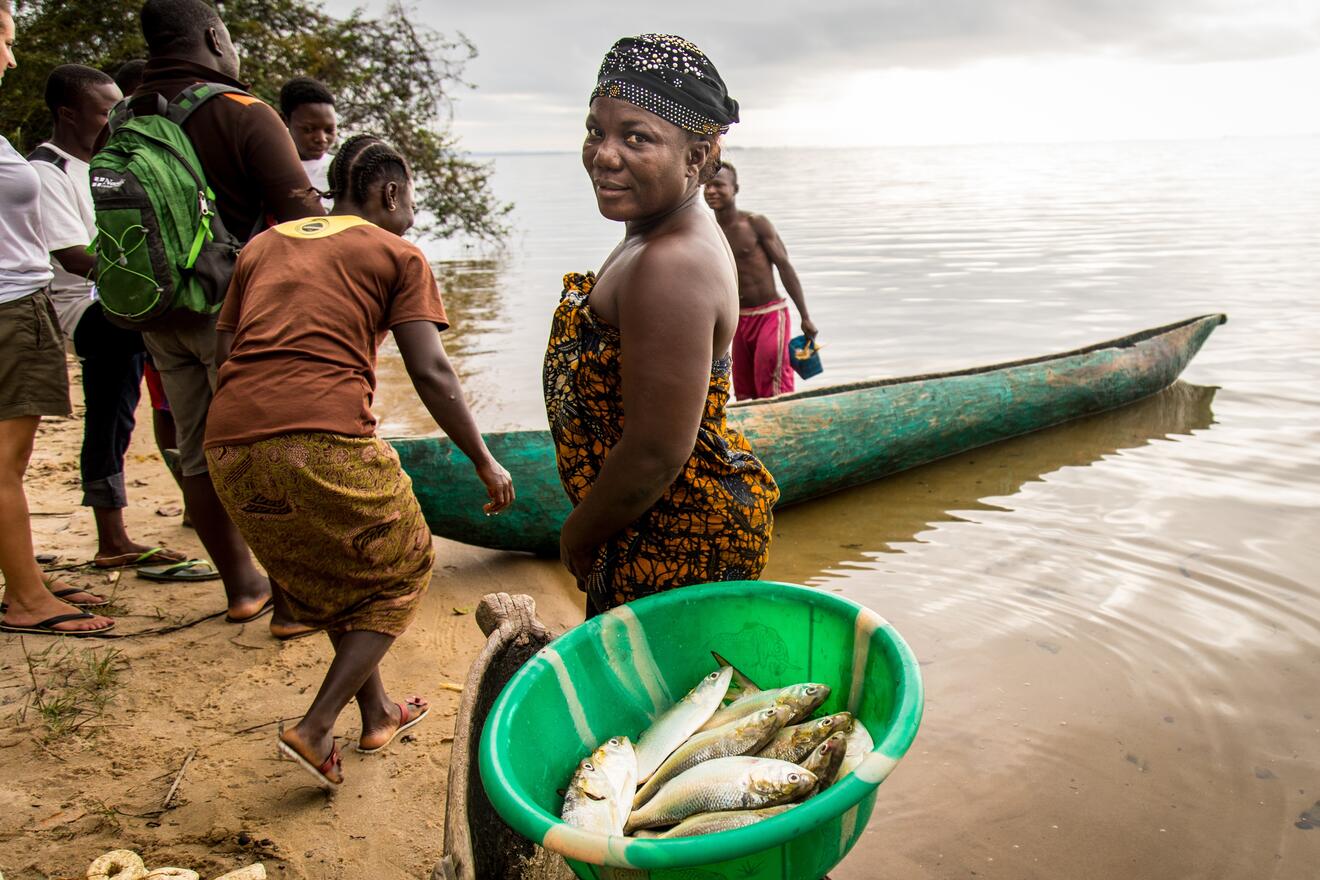
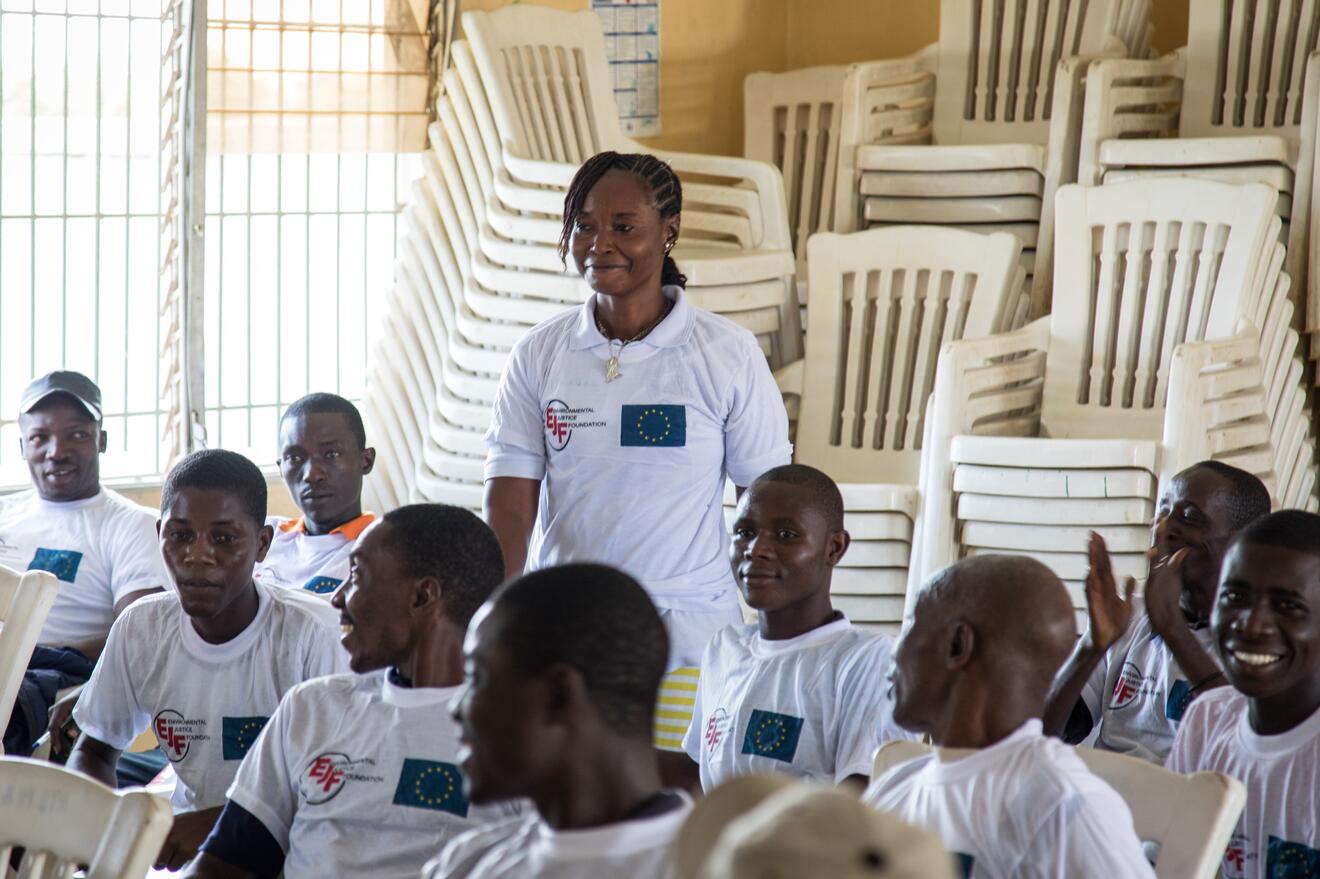
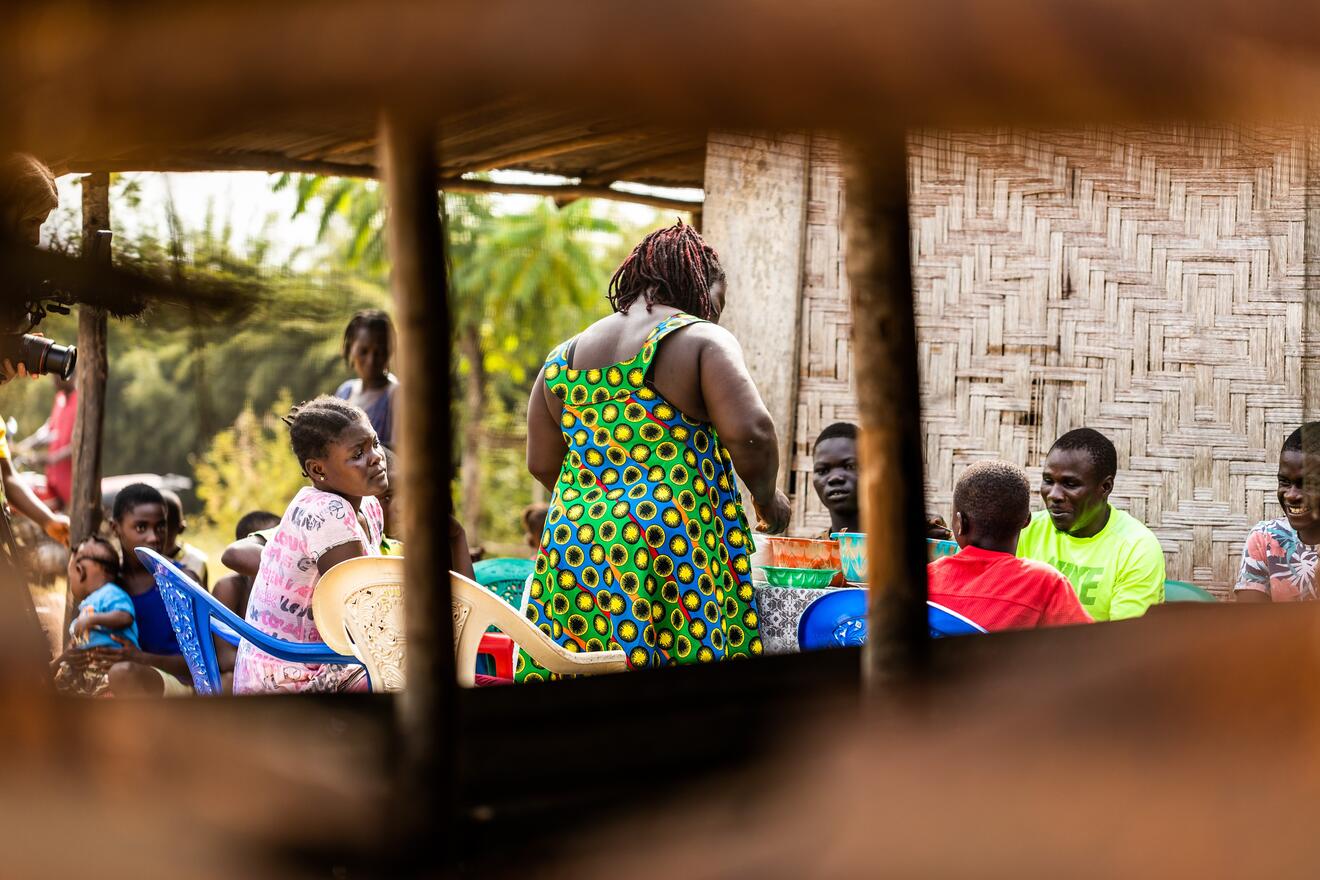
“I can even take you to the fishing community you can see for yourself what is happening,” says Theresa. “There you see the young baby on the mothers back - they’re inhaling the smoke, the mother and the baby - at the end of the day they get sick and if you don’t have money to care for yourself you might die.”
The women of Liberia’s fisheries are not out at sea, face to face with trawlers, and hauling nets that bring home fewer and fewer fish. But they know the issues just as well, and it affects them just as much. They are a crucial part of the solution. Only when all voices are heard can Liberia be restored to the proud fishing nation it once was, with healthy seas teeming with tasty fish.
This article was published in The Ecologist, and is reposted with permission.
SIGN UP FOR OUR EMAILS AND STAY UP TO DATE WITH EJF
